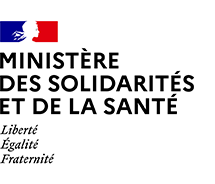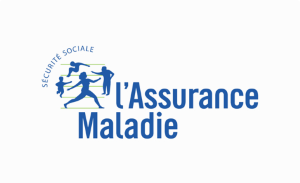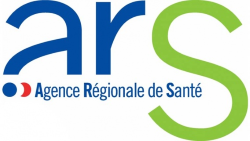eHealth Agency Main Partners
Institutional stakeholders and their role in the national eHealth ecosystem

From strategy to operations,institutional actors are playing a major role to make eHealth grow in France: the Ministry of Health: DNS & DGOS, Health Insurance Fund (CNAM), the ARS & GRADeS, ANAP and CNSA.
1. The Ministry of Health

a. The DNS
All digital transformation projects are overseen by the ministerial eHealth delegation (DNS), which reports directly to the Ministry of Health (FR MoH) (in French).
An eHealth Council (CNS) has also be created in order to become the instance of dialogue for strategic orientations bringing together all stakeholders of ehealth in France, institutions and all actors of the healthcare system from private and public sectors. The major pillars of eHealth policy are debated by the eHealth Council.
The delegation also seeks advice from an ethics unit to ensure that its actions are consistent with humanist values, and it acts as an interface with European and international eHealth initiatives. The technical framework document of the eHealth roadmap and the accompanying structural map are regularly updated.
b. The DGOS
In 2010, the Direction de l'Hospitalisation et de l'Organisation (DHOS) was replaced by the Direction Générale de l'Offre de Soins (in French) (the General Directorate of Healthcare Provision at the Ministry of Health). Its mission has been facilitated by the creation of regional health authorities (ARS) and by the ‘Hospital, Patients, Health and Regions’ (HPST) Law, and the DGOS is now part of a comprehensive approach to healthcare provision. Its responsibilities include the strategic oversight of healthcare entities, quality control, the definition and evaluation of healthcare access policies, and the promotion of healthcare services.
Within the framework of the ‘My Health 2022’ eHealth transformation strategy, the DGOS is overseeing the HOP’EN programme, which is a national action plan for hospital information systems.
2. Health Insurance Fund

The Caisse Nationale de l’Assurance Maladie (in French) (French National Health Insurance Fund (CNAM)) is at the operational helm of compulsory health insurance cover in France. Its role is to spearhead strategy at the national level and then coordinate and support the local organisms that make up its network.
More info about CNAM
CNAM is a national public administrative authority which reports both to the Ministry of Health (FR MoH) and the Ministry of the Economy and Finance.
The legal reform of August 2004 gave it responsibility for regulating the healthcare system and CNAM reorganised itself accordingly and made risk management a priority. It has several roles:
-
it defines the strategic directions, principles and objectives guiding its actions and implements them;
-
it implements the conventions agreed between the Union des Caisses d’Assurance Maladie and the unions representing the various healthcare professions;
-
it defines good practices in terms of issuing prescriptions in order to keep healthcare costs down;
-
it defines and promotes a strategy for the prevention of disease, workplace accidents and occupational illness and injury;
-
it defines and oversees the actions of organisms belonging to the network (CPAM, etc.);
-
it ensures consistency in the services provided to the public throughout the country;
-
it also manages one of the most extensive information systems in Europe.
Together with its network (DGCDR, CPAM), it is also supporting the roll-out to healthcare professionals and establishments of core eHealth services (DMP, MSS, e-prescriptions, etc.).
And lastly, within the framework of negotiating the conventions with the representatives of the various categories of healthcare professional, it is helping to define and implement conventions to promote the rolling out and use of digital tools in the health domain.
3. The ARS and GRADeS

The Agences Régionales de Santé (in French) (ARS, regional health authorities) are responsible for the regional management of the health service. They define and implement regional health policy based on local needs.
More info about ARS and GRADeS
They cover all aspects of healthcare:
-
prevention, and promotion of good health;
-
health and safety monitoring;
-
coordination of outpatient care (non-hospital Health Professionals) and hospital care;
-
coordination of social care.
Thanks to transversal connections and the sharing of regional health policies at a national level, the ARSs help to develop a synergy between regional players and a global overview of healthcare, resulting in a more seamless care experience for beneficiaries. They are the sole interlocutor for the various stakeholders in the health domain at the regional level.
An ARS is responsible for defining a region’s eHealth strategy and coordinating its implementation.
The Groupements Régionaux d’Appuis au Développement de l’e-Santé (GRADeS, regional eHealth support centres) are their go-to operators for elaborating and implementing regional eHealth strategy in a spirit of reciprocal commitments.
These support centres bring regional stakeholders together around a regional eHealth strategy, promote the use of eHealth services in the regions, and share their expertise with regional players. They can also spearhead projects not directly originating from the regional strategy in partnership with national institutions such as CNSA and CNAM.
4. ANAP

ANAP (in French) (Agence Nationale d'Appui à la Performance des Établissements de Santé et Médico-sociaux) supports healthcare professionals in sustainably and responsibly improving the performance of their health and social care establishments.
More info about ANAP
Its mission is to meet the needs of these establishments by organising events and interventions, and providing methodologies and tools elaborated with and for professionals on ground, in line with the 4 major priorities set by the Ministry of Health (FR MoH):
-
offer a more seamless experience for service users in terms of treatment and care;
-
facilitate access to information about available healthcare services and decision-making tools, and improve coordination between different hierarchical levels within the organisation;
-
work together to improve treatment and care for service users;
-
optimize the support functions.
ANAP has been developing and coordinating an extensive network of eHealth professionals that has the capacity to:
- contribute to ANAP’s projects and publications;
- play a role in the dissemination and adoption of tools, resources and practices by professionals on the ground;
- provide periodic assistance to a healthcare establishment or help run mutual aid collectives.
This network currently brings 80 professionals from the health and social care fields with a variety of profiles (digital engineers, managers, executives, healthcare professionals, etc.) and regularly publish toolkits (guides, tools and feedback) helping health professionals reaching better performance.
5. CNSA: Caisse nationale de solidarité pour l'autonomie

Created in May 2005, since 1 January 2021 CNSA (in French) (Caisse Nationale de Solidarité pour l’Autonomie) has been managing the 5th branch of the Social Security system, namely the Autonomy branch. It has a budget of over €31bn.
More info about CNSA
CNSA is responsible for:
-
balancing the books of this branch. To this end, it manages its accounts, settles invoices, records all transactions conducted by the branch, and manages risk;
-
elaborating policies to promote the autonomy of the elderly and disabled and coordinating their implementation with an emphasis on guaranteeing fairness (including regional fairness) and the quality and efficiency of the services provided to these groups. To this end, it collects and exploits data on beneficiaries’ needs and the range of services being offered. It designs and rolls out information systems with the capacity to host health data in conjunction with the public authorities, as provided for by Article L. 1111-24 of the Public Health Code. It places its technical expertise at the disposal of public agents and of professionals working in the autonomy field, as well as helping to develop training programmes in this domain. To guarantee service quality and fairness when processing requests for financial aid to assist and promote the autonomy of the disabled and the elderly, it supports regional authorities working in this domain and evaluates their policy proposals for promoting autonomy;
-
contributing to the financing (fairly distributed across the country) and oversight of
-
policies to prevent the loss of autonomy and combat isolation;
-
social care establishments and services;
-
individual services to promote autonomy and of systems set up at the local or national level to support autonomy and informal caregivers;
-
contributing to investment in initiatives to support autonomy.
-
CNSA is in charge of a national digital program whose aim is to increase digital maturity of all medico-social facilities : the ESMS digital programme (in French).
6. Health Data Hub (HDH)

Provided for by the 24 July 2019 Law on the organisation and transformation of the healthcare system, the Health Data Hub is a public structure whose objective is to enable project coordinators to easily access non-nominative data hosted on a secure platform, in compliance with regulations and citizens' rights. They will be able to cross-reference and analyse the data in order to improve the quality of care and patient support.
7. ANSSI

The French National Cybersecurity Agency (ANSSI) is committed to making sure that public administrations, public services, and businesses can take full advantage of a secure and trustworthy digitalisation.
Cybersecurity is viewed by France as a national priority and one that now concerns each and every one of its citizens.
The role of ANSSI is to foster a coordinated, ambitious, pro-active response to cybersecurity issues in France, to drive raising-awareness actions, as well as to spread French vision and expertise, and European values, abroad.
8. CNIL

Beyond raising awareness and sharing information on data protection culture, the CNIL has an advisory power, an onsite and offsite investigatory power as well as an administrative sanctioning power. It has established and coordinates the network of Data Protection Officers.
The CNIL analyses the consequences of new technologies on citizens’ private life. Finally, it collaborates closely with its European and international counterparts.